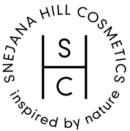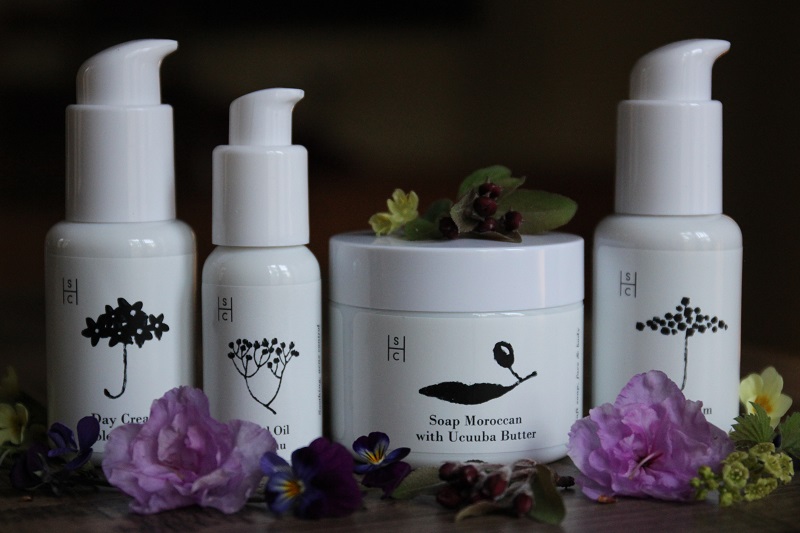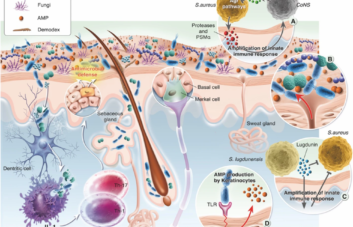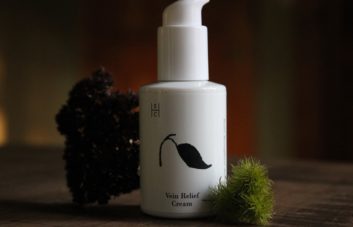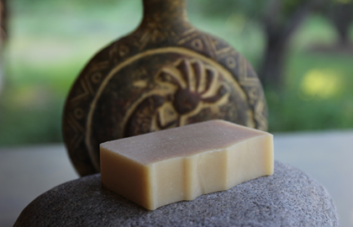According to the National Institute of Arthritis and Musculosceletal and Skin Diseases, 80% of people between 11 and 30 suffer from acne (1). Due to hormonal differences, women get acne more frequently than men (2).
Although acne is very common and its symptoms are well characterized, the driving causes of acne are not known to medicine. This is a typical situation for systemic chronic diseases.
The maintenance of the health and functions of the skin is done by an extremely complex mechanism involving a multitude of regulatory networks and tissues. If something goes wrong in one of them, or even worse in several, the skin develops the symptoms of acne. Therefore, acne is a complex systemic disease. It is supported by the observation that acne is much more prevalent in populations of western countries (3-5).
Due to this complexity, the driving cause of acne may vary from person to person depending on individual traits, lifestyle and the environment. Consequently, the most reasonable strategy in fighting acne is the support and restoration of various body functions. In other words, you need to provide your body with support, with everything it needs to fix all the problems in weak spots.
I will tell you about the main means of such support to alleviate acne symptoms and improve the skin health.
1. Nutrition
And yet in the matter of health we can generally do more for ourselves than the greatest Doctors can for us.
John Lubbock (6)
The health and beauty of the skin directly depends on what you eat. It is important to include in your menu lots of vegetables and fruits with vitamins A and C; they help cleansing and restoration of the skin (7). Good examples are buckthorn, kiwi, oranges, broccoli, spinach, carrot, pumpkin and other species of yellow, orange, red and green color.
It is important to use food that is high in fats of good quality – wild fish, nuts stored in shells (if stored outside shells, fats are oxidized very quickly losing their properties), oils of cold press, butter. Fatty acids restore the lipid barrier of the skin, protect from damage, as well as enhance anti-inflammatory potential (8).
The most effective way of moisturizing the skin is to go from the inside – drink lots of water and herbal teas. If you have dry lips, run an experiment: for a week, every morning fill up a 1.5 L bottle with water and make sure to finish it by the end of the day. I am confident that you will notice the difference.
Dropping sugar, refined foods, trans-fats (sweats, fast food, soda) from daily consumption is one the most important steps towards conquering acne. These high-glucose types of foods increase blood levels of insulin that helps transporting glucose inside cells. This may lead to pro-inflammatory reactions in the skin, as well as stimulates sebaceous glands (9, 10).
2. Physical activity
Life is movement. Nothing exhausts and destroys a human body more than physical inactivity.
Aristotle
Spend time outdoors. This will ensure the skin gets enough oxygen and nutrients, improving its immunity. If you are not a sport person, brisk walking will do. Needless to say, this activity is good not only for alleviating acne symptoms, but also for your general health status.
The benefit of outdoor activity is due to increased blood circulation; the higher the blood flow through the skin, the better it is supplied with nutrients. The blood will also remove toxins from the skin tissue. Lastly, physical activity triggers production of “hormones of happiness” – endorphins and serotonin. They help alleviate psychological stress which also affects the skin condition.
After the high physical activity, make sure to clean the sweat from the skin. Do not exercise with full makeup or a greasy cream on the skin; your sweat and sebaceous glands need to be open.
3. Lower your stress
Joyfulness is not only a feature of health, but is an effective means of preventing illness
S. Smiles
It’s not stress that kills us, it is our reaction to it
Hans Selye
Clinical studies have shown that stress stimulates production of androgens, the male hormones, in our bodies. They enhance the secretions of the sebum, causing skin rashes. Also, due to stress, the levels of glucocorticoids, the stress hormone, increase. These molecules are known to alter normal metabolism of the skin fatty acids destroying the skin’s outer protective barrier (3, 11).
Improve the quality of your night sleep. Make sure you get enough of it too. The sleep time is a crucial time period during which skin regeneration and restoration is the most efficient.
The following are the factors to alleviate stress, to improve sleep quality and digestion:
- regular physical activity outdoors
- warm bath with sea salt
- relaxing massage with aroma oils
- relaxing herbal teas
- healthy diet
- any other activities that help relaxation and restoration of psychic energy, such as meditation, yoga, etc.
4. Appropriate skin care
For acne-prone skin, the appropriate skin care consists of soft but thorough skin cleansing twice a day, active moisturizing, enhancing the protective outer layer of the skin, as well as fighting the bacteria Propionibacterium acnes that causes inflammation inside the sebaceous glands.
Robust cleansing helps exfoliate the dead cells of the epidermis which stimulates its regeneration and opens the sebaceous glands. Moisturizing the horny cell layer and its restoration results in a lower secretion of the sebum, which alleviates the inflammation inside the sebaceous glands. It also prevents further damage.
I formulated several products that help maintain your skin health and fight acne symptoms.
- Moroccan soap – for soft and delicate cleansing. The worst thing to do while fighting acne is t over-dry your skin; this would only enhance sebum production. This soap is ideal for that purpose: an excellent cleanser and soother.
- Day cream Helichrysum – ideal for oily and temperamental skin. It alleviates inflammation, helps skin regeneration and normalizes the activity of sebaceous glands.
- Day cream Violet Tricolor – powerful anti-inflammatory action; also suppresses sebum production. As each of my cosmetics, it is based on hyaluronic acid – meaning deep moisturizing and restoration of deep skin layers.
- Facial Oil Tamanu – SOS anti-inflammatory product for local application. May help catching acne at early stages to prevent further inflammation.
Copyright Snejana Hill Cosmetics. Use of this text or parts of this text without prior written permission from Snejana Hill Cosmetics is prohibited.
List of References
-
- https://www.niams.nih.gov/health-topics/acne#tab-risk
- https://www.aad.org/public/diseases/acne-and-rosacea/adult-acne
- Zouboulis CC (2004). Acne and sebaceous gland function. Clin Dermatol. 22, 360-366.
- Cordain L1, Lindeberg S, Hurtado M, Hill K, Eaton SB, Brand-Miller J.Acne vulgaris: a disease of Western civilization. https://www.ncbi.nlm.nih.gov/pubmed/12472346
- Melnik B. Acne vulgaris. Role of diet https://www.ncbi.nlm.nih.gov/pubmed/20107753
- John Lubbock, The pleasures of life. http://www.gutenberg.org/cache/epub/7952/pg7952.html
- Apostolos Pappas, The relationship of diet and acne https://www.ncbi.nlm.nih.gov/pmc/articles/PMC2836431/
- Logan A. “Omega-3 fatty acids and acne.” Archives of Dermatology. 2003; 139: 941-3. https://www.ncbi.nlm.nih.gov/pubmed/12480795
- Smith RN1, Mann NJ, Braue A, Mäkeläinen H, Varigos GA. The effect of a high-protein, low glycemic-load diet versus a conventional, high glycemic-load diet on biochemical parameters associated with acne vulgaris: a randomized, investigator-masked, controlled trial. https://www.ncbi.nlm.nih.gov/pubmed/17448569
- Smith RN1, Braue A, Varigos GA, Mann NJ. The effect of a low glycemic load diet on acne vulgaris and the fatty acid composition of skin surface triglycerides.
- Zouboulis CC, Picardo M, Ju Q, Kurokawa I, Torocsik D, Biro T , Schneider MR (2016). Beyond acne: Current aspects of sebaceous gland biology and function. Rev Endocr Metab Disord. 17, 319-334.
